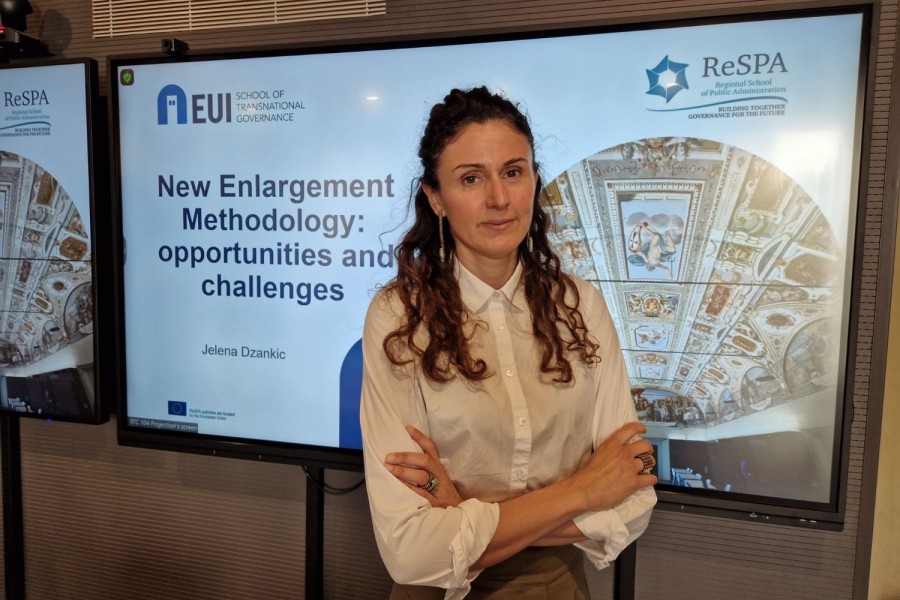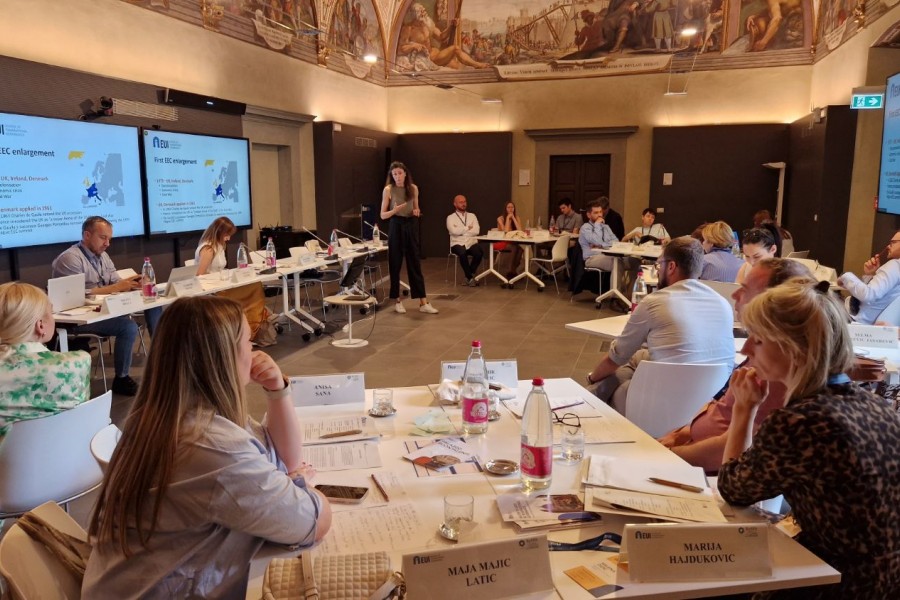
The ‘New’ Enlargement Methodology: Opportunities and Challenges
Few will disagree that the European Union (EU) integration of the Western Balkans has been at best slow. The ‘new’ enlargement methodology was launched in 2020 to inject some dynamism into the accession process of the region. Three years later, the true effects of this injection are yet to be seen. Even so, the revised methodology provides both opportunities and challenges for the EU membership ambitions of the Western Balkans. On the one hand, with the clear benchmarks and conditions, the thematic division of the Acquis, and the possibility of ‘phasing in’ to certain EU policies and programmes, it seems to lay down the promise of a faster, and more credible process. On the other hand, the lack of clarity as to how this ‘new’ methodology will work in practice and how it will address politically sensitive issues, casts a doubt over the feasibility of this promise.
The key opportunities that the revised methodology offers are a greater steering of the process, an improved speed of integration, and capacity-building. The steering would come from both the Commission and the Member States through different forums for political dialogue, including the annual EU-WB Summits, inter-governmental conferences with individual countries, and more frequent sectoral ministerial meetings. While high-level events can indeed offer a symbolic push to the process, more intense conversations across sectors are what can give substance to the new methodology. These sectoral opportunities could be enhanced by targeted EU funds. For instance, the Economic and Development Plan for the Western Balkans is an opportunity for alignment in areas such as transport, environment, green and digital transition. Taken together, and put in practice wisely, these novelties could bring the region closer to the EU in the most meaningful way – by improving governance across sectors that are essential for the everyday lives of citizens.
Yet these opportunities are tied together to a series of strong challenges, which need to be addressed for the ‘new’ methodology to have real chances to push the region in the ‘direction EU’. Above all, it is somehow unclear how things will work in practice. The revised methodology will be fully applied to post-2020 candidates, once they start negotiating. For Montenegro and Serbia, which have already opened most acquis chapters, a sort of a ‘mixed’ model will be used, with an emphasis on ‘phasing-in’ to EU policies and increased funding. Applying different strategies to different countries, which can be gradually integrated in different programmes or policies, poses another specific challenge to the enhanced methodology. It raises the question of whether the different directorates in the European Commission - with the legal instruments, human and financial resources at their disposal - have the capacity to handle such an integration? And on top of these ‘nitty-gritty’ hurdles, the more significant challenges are political. The enhanced methodology does not provide for safeguards against vetoes and blockages; nor does it put forward any indication of timelines. As such, how much credibility in EU accession of the Western Balkans can it actually restore?
Russian attack on Ukraine seems to have given a push to enlargement; and changed it, swiftly bringing three new countries in the line of accession. To simultaneously manage the expectations of the Eastern Trio and frustrations of the Western Balkans, the enhanced methodology needs an ‘all hands-on deck’ sectoral approach, with a clear political steer in the ‘direction EU’.

Jelena Džankić is a Part-Time Professor in the Global Governance Programme at the Robert Schuman Centre of the European University Institute in Florence, Italy, where she directs the Southeastern Europe programme. She holds a PhD from the University of Cambridge and has taught and researched at the University of Edinburgh, University College London, University of Graz, and Central European University. Her research interests include EU integration, comparative citizenship studies, and an area focus on the Western Balkans. She is the author of several books and numerous academic articles on these topics.




